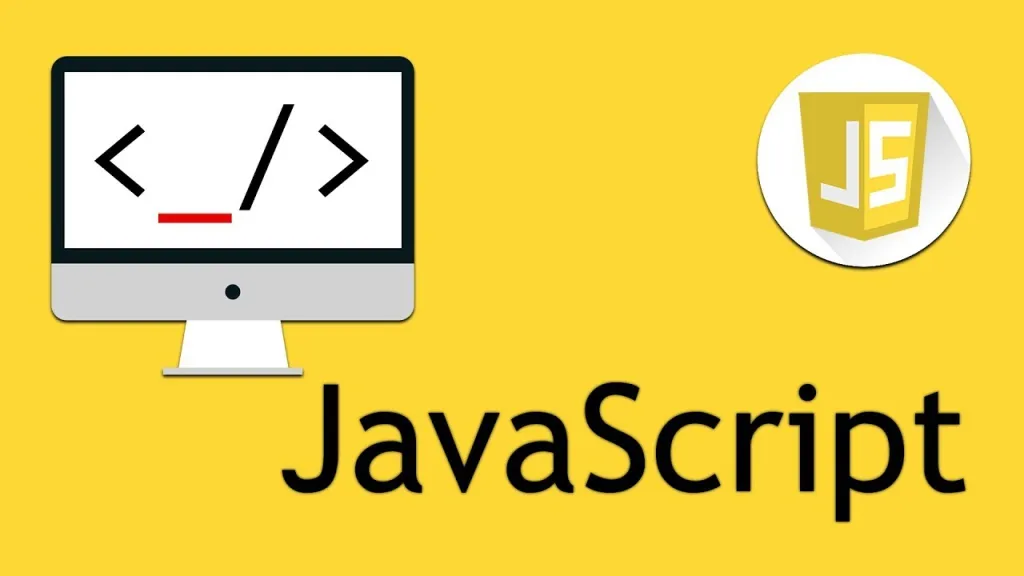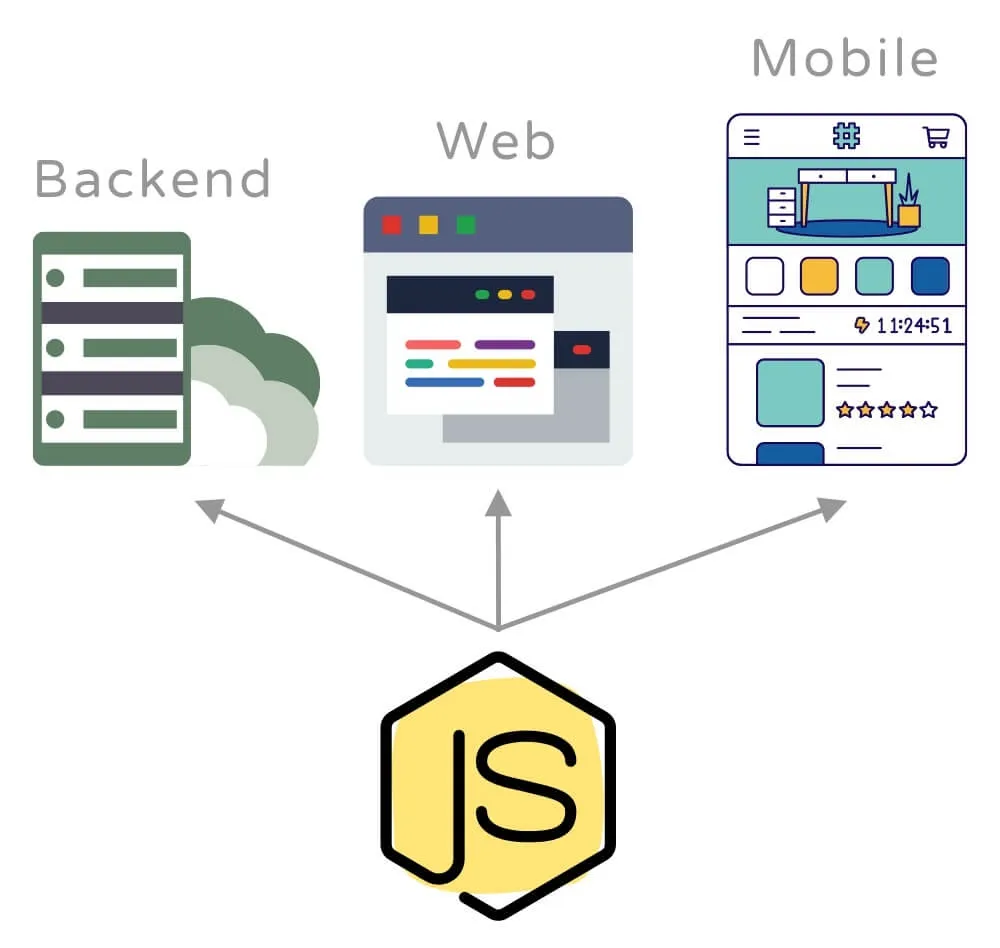In the ever-evolving world of technology, the importance of programming languages has become increasingly apparent. JavaScript, in particular, has emerged as a powerful and versatile tool that has transformed the way we interact with the digital landscape. From dynamic web pages to complex web applications, JavaScript has become an essential skill for anyone looking to thrive in the tech industry. In this article, we will explore the reasons why you should consider learning JavaScript and the various benefits it can offer.
The Rise of JavaScript

JavaScript has come a long way since its inception in the 1990s. Initially, it was primarily used for adding simple interactivity to web pages, but over the years, it has evolved into a robust language that can power a wide range of applications. Today, JavaScript is not only used for front-end development but also for back-end development, mobile app development, and even game development.
The Ubiquity of JavaScript
One of the most compelling reasons to learn JavaScript is its ubiquity. As the primary language for web development, JavaScript is used on almost every website, from simple blogs to complex e-commerce platforms. This widespread use means that JavaScript skills are in high demand, and proficiency in the language can open up a wide range of job opportunities.
The Growth of JavaScript Frameworks and Libraries
The JavaScript ecosystem has grown exponentially in recent years, with the development of numerous frameworks and libraries that have further expanded the language’s capabilities. Frameworks like React, Angular, and Vue.js have made it easier to build complex, scalable web applications, while libraries like jQuery and Node.js have expanded the language’s reach beyond the browser.
The Rise of Single-Page Applications
The advent of single-page applications (SPAs) has been a game-changer in the world of web development. These applications load fully client-side, reducing page refreshes and providing a smoother, more responsive user experience. JavaScript, with its ability to manipulate the Document Object Model (DOM) and handle asynchronous tasks, has become the language of choice for building these dynamic applications.
The Versatility of JavaScript

One of the key advantages of learning JavaScript is its versatility. The language can be used for a wide range of tasks, from simple scripting to complex application development.
Front-end Development
JavaScript’s primary use is in front-end development, where it is used to add interactivity and dynamic behavior to web pages. This includes features such as drop-down menus, form validation, image sliders, and pop-ups. With the help of libraries and frameworks like React, Angular, and Vue.js, developers can create sophisticated user interfaces and build complex web applications.
Back-end Development
In recent years, the rise of Node.js has enabled developers to use JavaScript for back-end development as well. Node.js is a runtime environment that allows developers to run JavaScript code on the server-side, enabling the creation of RESTful APIs, handling HTTP requests, and managing database interactions.
Mobile Development
The introduction of technologies like React Native and NativeScript has made it possible to use JavaScript for mobile app development. These frameworks allow developers to build native iOS and Android applications using JavaScript and related technologies, such as React and Angular.
Game Development
While not as commonly associated with game development as other languages, JavaScript can also be used to create simple browser-based games. Libraries like Phaser and PixiJS have made it easier for developers to create interactive games that can be played directly in the web browser.
The Career Benefits of Learning JavaScript

Learning JavaScript can provide significant career benefits, making it an attractive choice for both aspiring and experienced developers.
High Demand for JavaScript Developers
As the web continues to evolve, the demand for skilled JavaScript developers has steadily increased. Companies across a wide range of industries are seeking developers with expertise in JavaScript, from small startups to large tech giants. This high demand translates to a wealth of job opportunities and competitive salaries for those who have mastered the language.
Versatility and Flexibility
The versatility of JavaScript allows developers to take on a wide range of projects and responsibilities. Whether it’s building dynamic web pages, creating single-page applications, or developing mobile apps, JavaScript skills are highly transferable and can be applied to a variety of tasks. This flexibility can make JavaScript developers more valuable to employers and open up more career paths.
Increasing Earning Potential
According to various industry reports, JavaScript developers tend to command higher salaries compared to developers proficient in other programming languages. This is largely due to the high demand for JavaScript skills and the language’s ubiquity in the tech industry. By learning JavaScript, you can potentially increase your earning potential and open up more lucrative job opportunities.
Opportunities for Freelancing and Entrepreneurship
The versatility of JavaScript also lends itself well to freelancing and entrepreneurship. Developers with strong JavaScript skills can offer their services as freelancers, working on a wide range of projects for clients. Additionally, JavaScript’s ability to power dynamic web applications and mobile apps makes it an attractive language for aspiring entrepreneurs looking to build their own products and startups.
Getting Started with JavaScript
If you’re convinced that learning JavaScript is the right choice for you, the next step is to dive into the language and start building your skills.
Fundamentals of JavaScript
Before you can dive into more advanced JavaScript concepts, it’s essential to master the fundamentals of the language. This includes understanding variables, data types, control structures, functions, and the DOM (Document Object Model). There are numerous online resources, such as tutorials, courses, and documentation, that can help you build a solid foundation in JavaScript.
Exploring JavaScript Frameworks and Libraries
Once you’ve grasped the basics, you can start exploring the various JavaScript frameworks and libraries that can help you build more complex applications. Popular frameworks like React, Angular, and Vue.js provide powerful tools and abstractions that can simplify the development process and help you create more robust, scalable applications.
Practicing and Building Projects
The best way to improve your JavaScript skills is to practice by building projects. Start with simple web pages and gradually work your way up to more complex applications. Participate in coding challenges, contribute to open-source projects, or even create your own personal projects to showcase your skills and gain practical experience.
Continuous Learning and Staying Up-to-Date
The world of JavaScript is constantly evolving, with new frameworks, libraries, and best practices emerging all the time. Staying up-to-date with the latest trends and developments in the JavaScript ecosystem is crucial for your professional growth. Attend meetups, participate in online communities, and read industry blogs and publications to keep your skills sharp and your knowledge current.
Mastering JavaScript: Beyond the Basics

As you progress in your JavaScript learning journey, you’ll encounter more advanced topics and techniques that can take your skills to the next level.
Asynchronous Programming
One of the key concepts in JavaScript is asynchronous programming, which allows the language to handle multiple tasks concurrently without blocking the main thread. Understanding concepts like callbacks, promises, and async/await is essential for building responsive, efficient applications.
Test-Driven Development (TDD)
Incorporating test-driven development (TDD) into your JavaScript projects can greatly improve the quality and maintainability of your code. By writing tests before writing the actual code, you can ensure that your application functions as expected and catch bugs early in the development process.
Performance Optimization
As your applications grow in complexity, optimizing their performance becomes increasingly important. Techniques such as code minification, tree shaking, and lazy loading can help improve the speed and efficiency of your JavaScript-powered applications.
Deployment and Automation
Automating the deployment process for your JavaScript applications is crucial for ensuring consistent and reliable releases. Tools like webpack, Gulp, and Travis CI can help you set up a robust build and deployment pipeline, making it easier to manage your projects at scale.
Scalability and Architecture
When working on large-scale JavaScript applications, understanding scalable architecture patterns and design principles becomes essential. Concepts like modular design, separation of concerns, and event-driven architecture can help you build applications that are maintainable, extensible, and capable of handling increasing user demands.
Conclusion
Learning JavaScript is a rewarding and empowering journey that can open up a world of opportunities for aspiring and experienced developers alike. With its versatility, ubiquity, and growing demand, JavaScript has become an essential skill in the tech industry. By mastering the language and continuously expanding your knowledge, you can position yourself for success in a dynamic and ever-evolving field.
Whether your goal is to build captivating web experiences, develop robust backend systems, or create innovative mobile applications, JavaScript offers a versatile and powerful solution. By embracing the language’s fundamentals, exploring its frameworks and libraries, and continuously honing your skills, you can unlock a wealth of career prospects and personal growth opportunities.
So, if you’re ready to embark on an exciting and rewarding journey, start learning JavaScript today. With dedication, persistence, and a passion for technology, you can transform your aspirations into reality and become a skilled, in-demand JavaScript developer.



